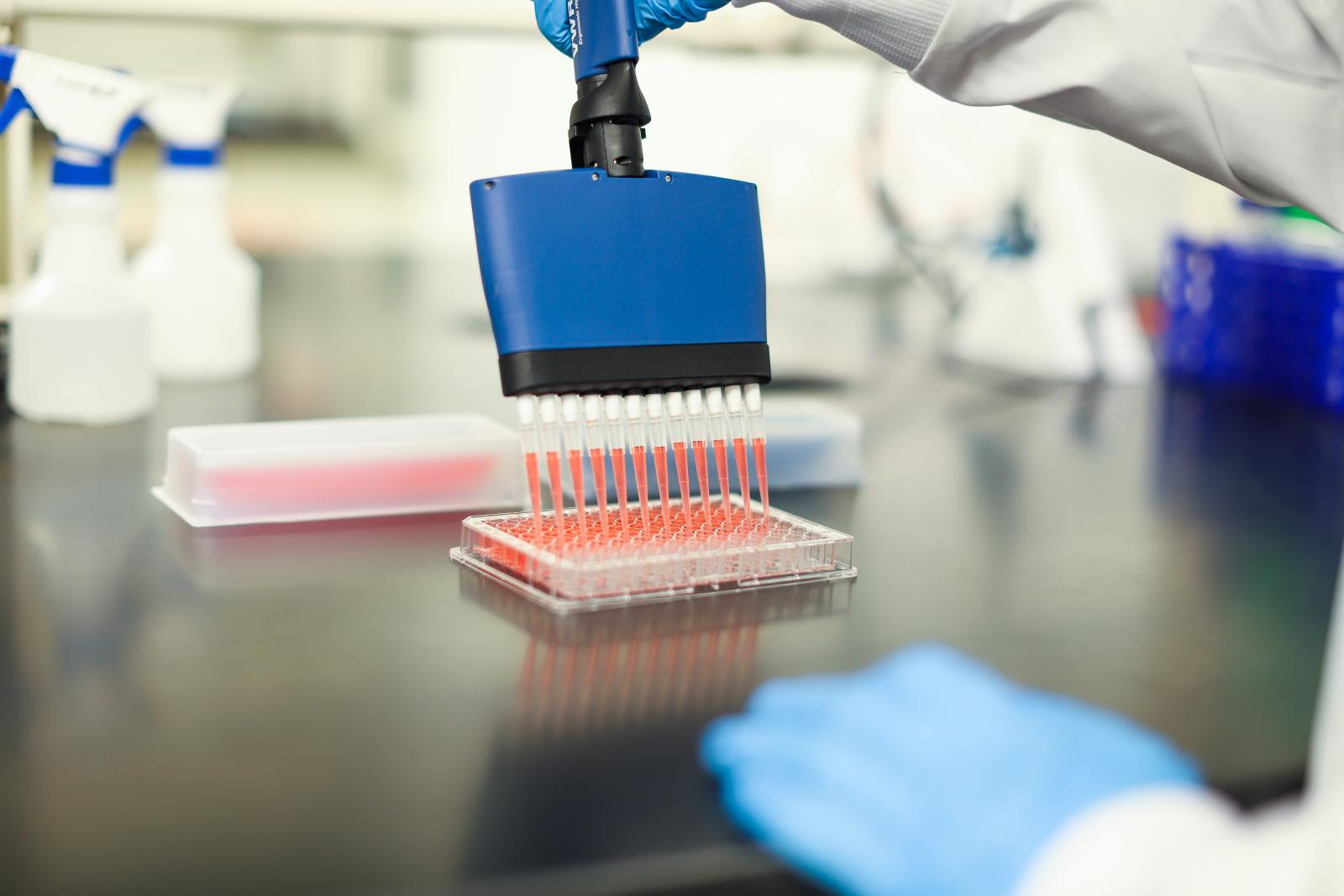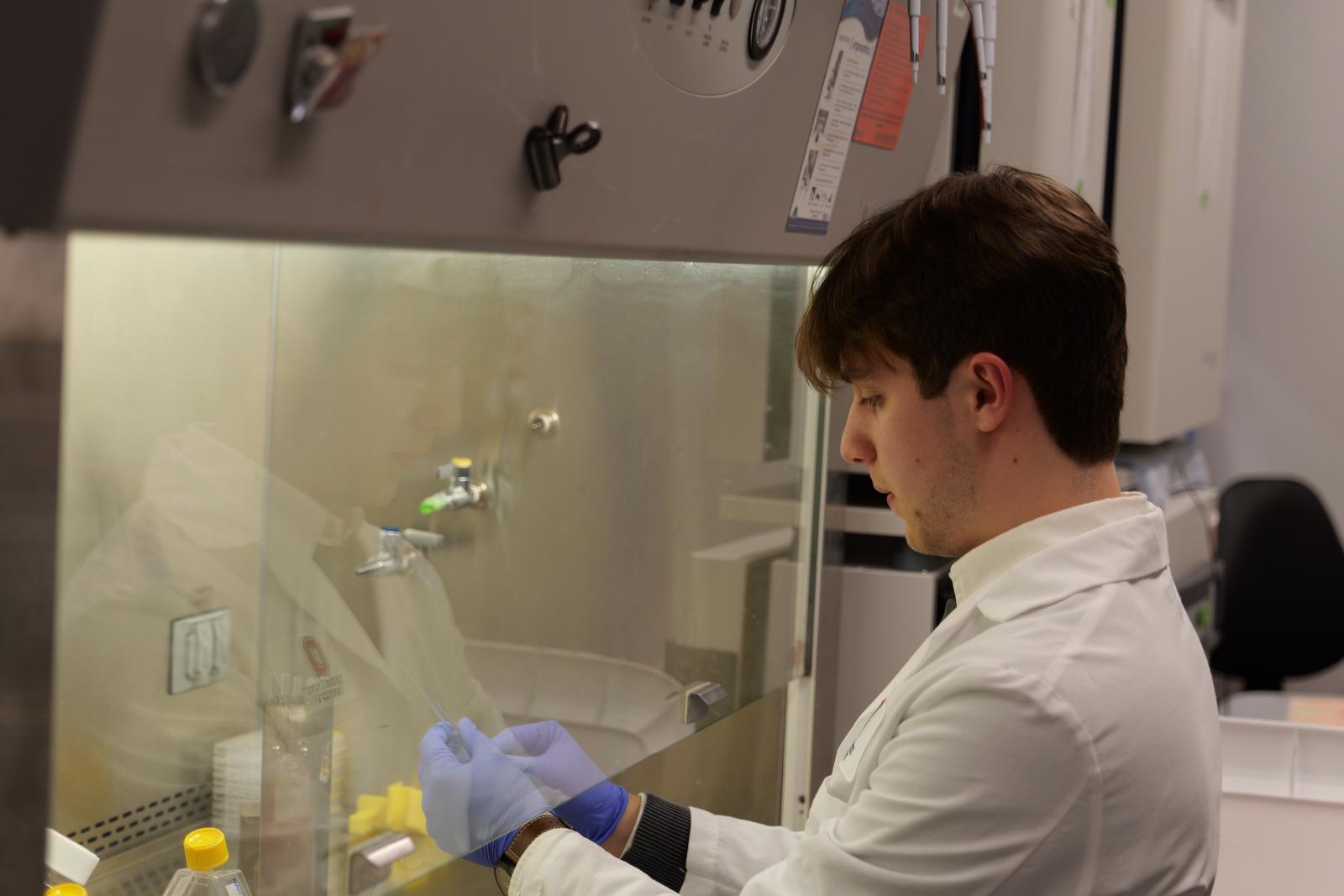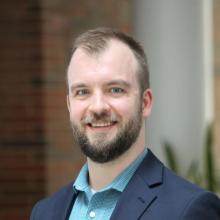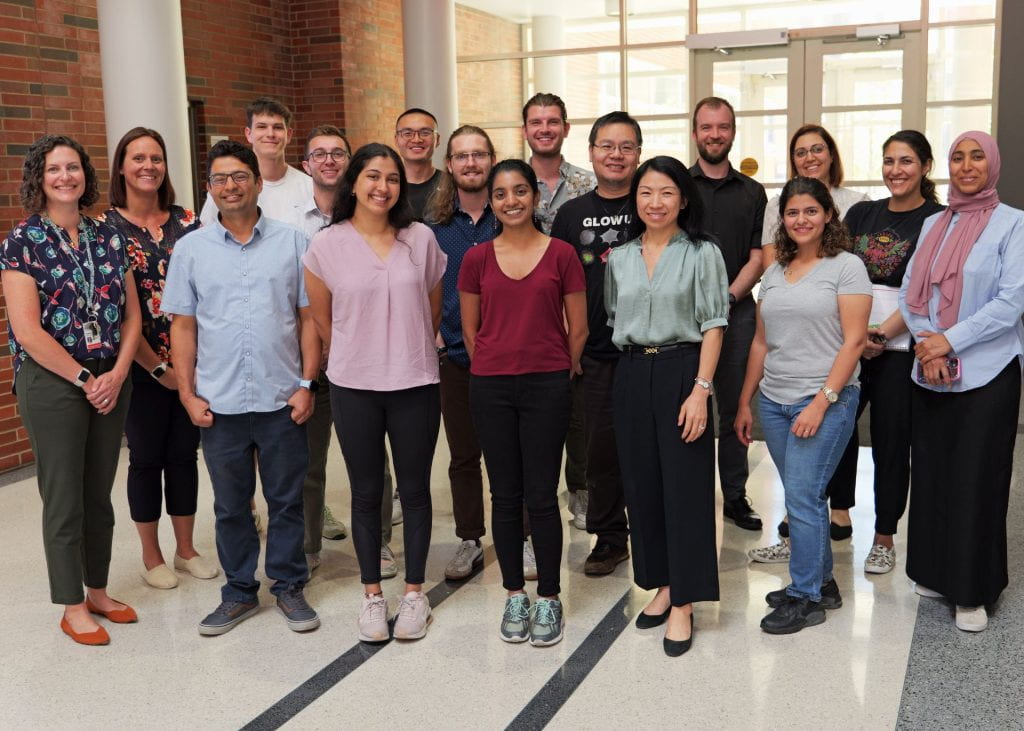Stepping back: How Eric Eisenmann’s philosophy encourages self-discovery

Upon joining the Experimental Cancer Pharmacology Laboratory (ECPL) at The Ohio State University College of Pharmacy, undergraduate students must pass a test with flying—or rather, diluted—colors.
After undergoing safety training and lab orientation, undergraduate mentees of Assistant Professor Eric Eisenmann, PhD ’21, PharmD, are left with instructions to create a dilution series in a 96-well plate using food coloring. It’s a visually satisfying test of their technical lab skills and independence and an introduction to the world of translational sciences.
Dr. Eisenmann sees the test as a key foundation for their future in research.
“This exercise gives them a tangible readout of their success and most importantly, validates that their technique is correct,” he said. “They can feel confident in their benchwork ability and know that they have the capability to function independently without someone holding their hand the whole time.”
Third-year pharmaceutical sciences major Levi Steenrod joined ECPL for the 2023-2024 school year after sending an email to Dr. Eisenmann expressing his interest in expanding his research capabilities. Thanks to his time as a researcher in the ECPL and the College of Pharmacy, Steenrod is an enthusiastic supporter of undergraduates interested in entering the lab.
“I didn’t know all that much about the work happening in the ECPL besides their focus,” Steenrod said. “But Dr. Eisenmann is a great mentor who has taught me to hone different techniques and get involved throughout different stages of the research process. It’s really fulfilling to support the work in your lab and be encouraged to grow.”

Before joining the ECPL as a PhD candidate and advancing to his current role as a junior faculty member, Dr. Eisenmann spent years as an undergraduate and professional student, balancing time between PharmD education and lab work.
He started his academic career at Ohio Northern University (ONU) taking part in the university’s direct-entry Doctor of Pharmacy program. This program allows individuals to earn a PharmD in six years.
While completing the program, Dr. Eisenmann joined the neuroscience lab of Dr. Phillip Zoladz. It was there that he found himself hooked on research. He even made the choice to pursue a Bachelor of Science in Psychology to facilitate greater overlap between his clinical studies as a PharmD candidate and his budding career as a researcher.

"We’re a learning institution and that means that students can try out things that may or may not be a fit."
Today, he acknowledges that his time with Dr. Zoladz encouraged him as a principal investigator (PI) to actively involve undergraduates in his research.
“By the end of my time at ONU, I ended up as the head researcher in the neuroscience lab with Dr. Zoladz,” Dr. Eisenmann said. “I was coordinating the activity of 10 undergrads. It helped me to see what they’re capable of achieving in the lab despite not having the same amount of dedicated research time as graduate students.”
However, Dr. Eisenmann noted that there’s an even greater takeaway on student researchers from his time in Dr. Zoladz’s lab.
“Most importantly, having undergraduate or professional students in the lab gives them a chance to learn the skills necessary for their next step and discern if this is actually what they want to do,” he added. “I’ve had research assistants who end up in graduate school and plenty who haven’t. That’s just fine. We’re a learning institution and that means that students can try out things that may or may not be a fit.”
Dr. Eisenmann’s hands-on experience in the lab combined with his interest in the PharmD curriculum pushed him to “bridge the gap between benchwork and bedside.”

After completing a bachelor’s degree and a PharmD at ONU, Dr. Eisenmann joined the Ohio State College of Pharmacy’s ECPL to pursue a PhD in pharmaceutical sciences with an emphasis on translational science. Professor and Chair of the Division of Pharmaceutics and Pharmacology Sharyn Baker, PhD, PharmD, served as his PhD supervisor and mentor.
"I’ve enjoyed the opportunity to apply my clinical training to research questions within the pharmaceutical sciences,” Dr. Eisenmann reflected. “A lot of students aspire to complete research in that translational space.”
As a new faculty member, Dr. Eisenmann has become the fourth PI in the ECPL. Though he now leads his own research and directs a team of undergraduate and graduate students, he's glad to maintain a certain proximity to his ECPL mentors.
“Drs. Baker and Sparreboom were instrumental in my graduate studies,” Dr. Eisenmann said. “They continue to support me as I take on greater independence and manage my own team, which I am so appreciative of.”
The switch to faculty from postdoc mirrors the uncertainty that he felt in moving from a structured PharmD lab to the looseness of Dr. Zoladz’s lab or the ECPL. Nonetheless, Dr. Eisenmann is confident that the support and guidance available within the College of Pharmacy will support his success as a new faculty member.
Now outfitted with the knowledge of how far a passion for discovery and a strong community can take him, Dr. Eisenmann is excited for all that’s yet to come.
“One of the most important attributes of doing lab-based research is being self-motivated and seeking out what you’re interested in,” he said. “Even as I try to coach my own undergraduates with this, I know I’ll still be learning myself and seeing what continues to be a good fit for my passions.”